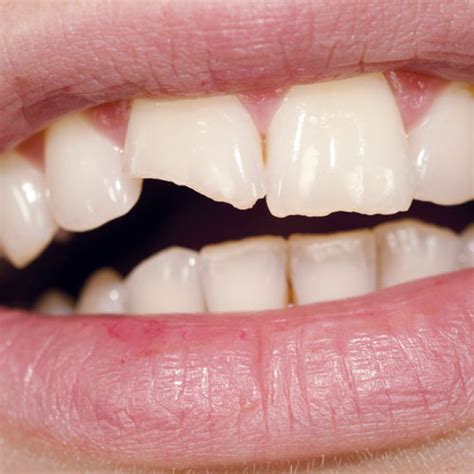Serious Chipped Tooth Repair: Costs & Recovery Time
A chipped tooth, while seemingly minor, can range from a cosmetic nuisance to a serious dental emergency depending on the severity of the damage. Understanding the different repair options, associated costs, and recovery timelines is crucial for making informed decisions and ensuring optimal oral health. This comprehensive guide will delve into the various aspects of serious chipped tooth repair, equipping you with the knowledge to navigate this dental challenge effectively.
What Constitutes a "Serious" Chipped Tooth?
A "serious" chipped tooth extends beyond superficial damage. It involves significant fracturing that exposes the dentin (the layer beneath the enamel) or even the pulp (the tooth's nerve and blood vessels). These situations often necessitate more complex and costly procedures than simple cosmetic fixes. Signs of a serious chip include:
- Significant loss of tooth structure: A large portion of the tooth is missing.
- Sharp edges: These can irritate the tongue, cheek, or lip.
- Pain or sensitivity: This indicates potential damage to the dentin or pulp.
- Bleeding: This points towards pulp exposure.
- Discoloration: The affected area may appear darker than the rest of the tooth.
Common Repair Methods for Serious Chipped Teeth
The chosen repair method depends on the extent of the damage and the location of the chip. Here are some common treatments for serious cases:
1. Dental Bonding:
This technique uses a tooth-colored resin to fill and reshape the chipped area. While effective for smaller chips, it might not be suitable for substantial fractures.
2. Dental Veneers:
Veneers are thin, custom-made shells that cover the front surface of the tooth. They are ideal for repairing chips that affect the tooth's aesthetics and provide excellent strength and durability.
3. Dental Crowns:
Crowns are caps that entirely encase the damaged tooth, providing complete protection and restoring its structure. They are essential when significant tooth structure is lost or the pulp is compromised.
4. Root Canal Treatment:
If the pulp is exposed or infected, a root canal is necessary. This procedure removes the infected pulp, cleans and disinfects the canal, and seals it to prevent further infection. Often, a crown is placed over the tooth after a root canal.
How Much Does Serious Chipped Tooth Repair Cost?
The cost of repairing a seriously chipped tooth is highly variable and depends on several factors:
- Extent of the damage: Minor chips are cheaper to fix than those requiring extensive restorative work.
- Type of repair: Bonding is generally the least expensive, while crowns and root canals are considerably more costly.
- Location: Geographic location significantly impacts dental costs.
- Dentist's fees: Different dentists charge varying rates.
While providing exact figures is impossible without a dental examination, expect to pay anywhere from a few hundred dollars for bonding to several thousand dollars for a crown and root canal treatment. Dental insurance may partially cover some procedures, but it's vital to check your policy's specifics.
Recovery Time After Serious Chipped Tooth Repair
Recovery time varies depending on the procedure:
- Bonding: Minimal recovery time; usually, you can resume normal activities immediately.
- Veneers: A few days of minor sensitivity are possible, but most patients experience a quick recovery.
- Crowns: Sensitivity might persist for a few weeks, but full recovery is typically achieved within a month.
- Root Canal: Several days to a few weeks of mild discomfort and sensitivity are common.
What are the Long-Term Effects of Untreated Serious Chipped Teeth?
Neglecting serious chipped teeth can lead to severe complications, including:
- Increased tooth sensitivity: Leading to discomfort when consuming hot or cold foods and drinks.
- Tooth infection: Potentially leading to abscesses and even the need for tooth extraction.
- Further damage: The chip can worsen over time, requiring more extensive and costly repairs.
How Can I Prevent Chipped Teeth?
Prevention is always better than cure. You can reduce your risk of chipped teeth by:
- Wearing a mouthguard: Especially during contact sports or activities where there is a risk of impact to the face.
- Avoiding biting down on hard objects: Such as ice, pens, or hard candy.
- Practicing good oral hygiene: Regular brushing and flossing strengthen teeth and gums.
People Also Ask (PAA) Questions:
How long does it take to get a crown after a root canal?
It typically takes two to three appointments to get a crown after a root canal. The first appointment involves the root canal procedure. A temporary crown may be placed. The second appointment involves taking impressions for the permanent crown, and the final appointment is for the cementation of the permanent crown.
Can a chipped tooth heal on its own?
No, a chipped tooth cannot heal on its own. The enamel, once damaged, cannot regenerate. Dental intervention is necessary to repair the damage and prevent further complications.
Is a chipped tooth an emergency?
While minor chips may not be emergencies, significant chips that expose the dentin or pulp, cause severe pain, or involve bleeding require immediate dental attention. These situations are considered dental emergencies.
How can I tell if my chipped tooth needs a root canal?
Signs that indicate a potential need for a root canal include intense, lingering pain, swelling around the tooth, sensitivity to touch, and a dark discoloration of the tooth. A dental professional can accurately assess the situation and determine the necessary treatment.
This article provides general information and should not be considered a substitute for professional dental advice. Always consult with a qualified dentist for diagnosis and treatment of any dental issue. Remember, proactive dental care is crucial for maintaining a healthy and beautiful smile.

